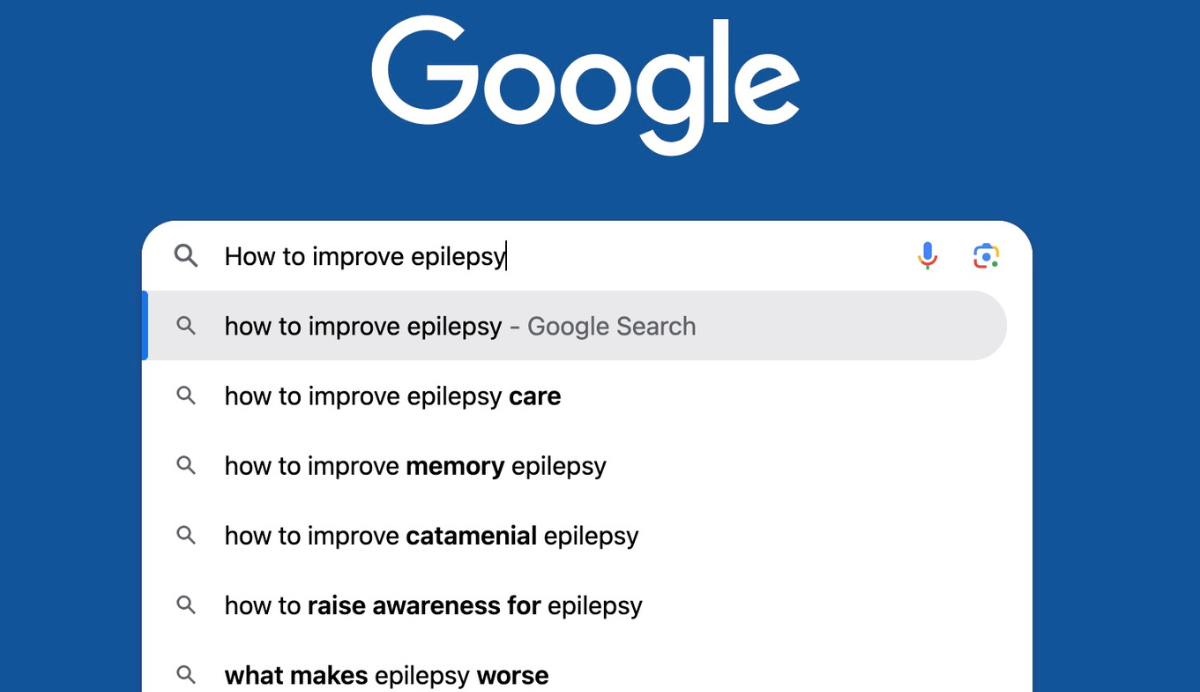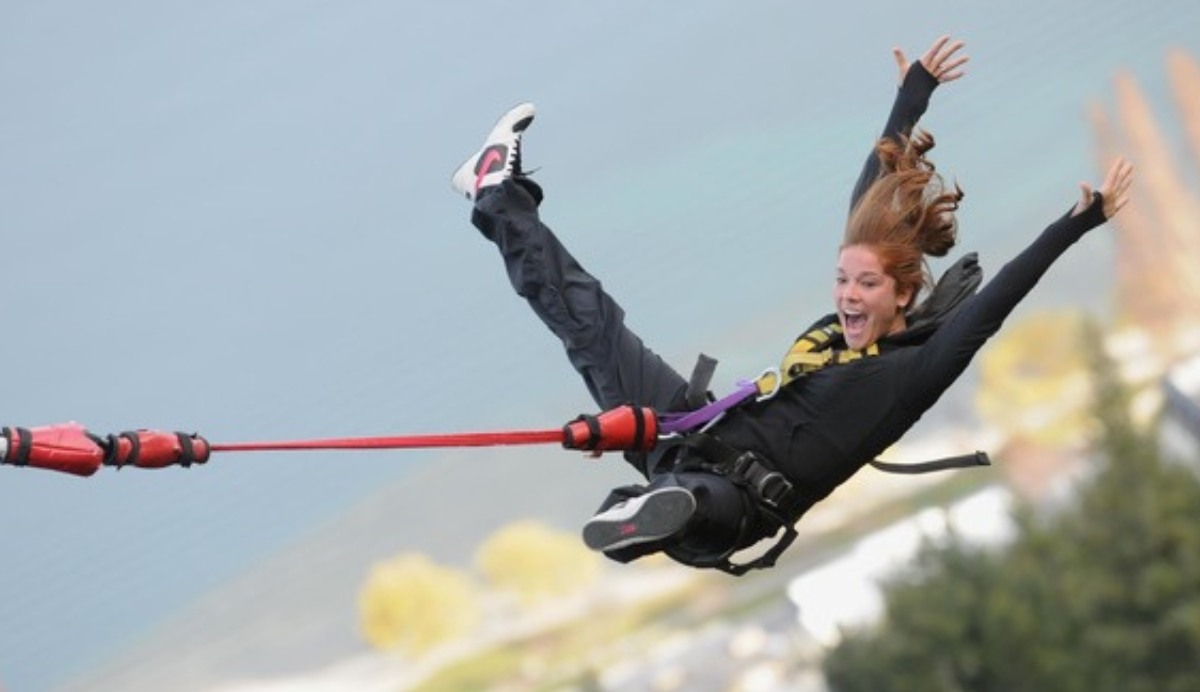Stay informed: Discover news about the AEP

Ask an Epilepsy Expert: What can I do to help my condition?
We've had such great feedback from our first episode of Ask an Epilepsy Expert that we've dropped episode two early. Here Imaging Lead, Dr David Vaughan answers the question: what can I do to help my condition? You can watch more episodes on our social channels. Read more to find out how.

Ask an Epilepsy Expert: How is epilepsy diagnosed?
We've launched our Ask an Epilepsy Expert series where our AEP team answer common questions about epilepsy. In episode 1, AEP imaging Lead, Dr David Vaughan answers the question: how is epilepsy diagnosed?

AEP Participant: Kylie Staats shares her story
Hi, my name is Kylie Staats, I’m 37 years old and I have had epilepsy for almost my entire life. I had my first seizure when I was four years old, and at that time, nobody knew why it was happening.

AEP Volunteer: Luke Wolfe
Meet Luke Wolfe, a recent volunteer for the AEP’s control group. Earlier this year, his close friend experienced her first seizure and was subsequently diagnosed with epilepsy. Watching her navigate this new diagnosis and its impact on her life left him wondering if there was a more proactive way he could help, other than offering care and support.

Meet the team: Seiko Bhungane
Meet Seiko, a Clinical Trials Assistant with the Australian Epilepsy Project. As a member of the Clinical Trials team, Seiko is responsible for the recruitment of both AEP participants and control group volunteers as well as the follow-up interviews with our three participant cohorts (first seizure, newly diagnosed and drug-resistant). “The first call you get from the AEP and the last one, is done by my team and I.”

In conversation: Carol Ireland, CEO Epilepsy Action Australia (EAA)
Epilepsy Action Australia (EAA) has been supporting individuals affected by epilepsy for more than 65 years. The organization provides essential services, including education, advocacy, and support to improve the quality of life for those living with epilepsy. It has assisted thousands of people through its programs, offering resources and information to help manage the condition. Epilepsy Action Australia is dedicated to raising awareness and promoting understanding of epilepsy within the community. We spoke with Epilepsy Action Australia CEO, Carol Ireland, about the importance of EAA’s work.

Q and A with Anton de Weger, AEP Digital and Technology Lead
Anton de Weger, AEP Digital and Technology Lead, explains his role in creating automated processes for the AEP’s key functions including managing participants' data and supporting future research. As well as research outcomes, the AEP portal where a participant's data is synthesised to create the AEP report has been a key outcome of our study and a crucial diagnostic tool for neurologists. Anton talks about its development and future outcomes.

Meet the team: AEP Researcher, Dr Suyi Ooi
Suyi discusses presenting her PhD project: improving the prediction of seizure recurrence for people who have experienced their first seizure, at the Florey Symposium and what she gained from the experience

Meet the team: AEP Researcher, Philip Pruckner
Early career researchers are a vital part of the AEP and to our research outputs. We talked to one of our student research team members, Philip Pruckner, to find out more about his area of study and how the recent Florey Student Symposium provides a great opportunity to support his career development.

Meet the team: AEP Researcher, Leila Nategh
Leila is a third year student and a member of the Australian Epilepsy project team. Leila discusses her epilepsy research and how symposia are critical in forging collaborations and insights with other researchers in the field of epilepsy.

Meet the Team: AEP Researcher, Vicky He
Early career researchers are a vital part of the AEP and to our research outputs. We spoke with team member, Vicky He to find out more about her area of study and how symposia provide great opportunities to support career development.

AEP Participant: Lauren Vosper
Lauren has been living with epilepsy since she was 19 years old but wasn’t diagnosed until 25. “Although I didn't know for certain, after researching my symptoms (which began at 19), I was pretty confident I was having seizures.”

AEP Participant: Darcey Colvin
Darcey was diagnosed with epilepsy about 12-months ago after what seemed like an extremely long year of testing with no results. She recently participated in the Australian Epilepsy Project to gain access to advanced testing (imaging, cognition and neuropsychology), testing that is not normally available as a part of standard care.

John Hoyne shares his epilepsy story
John Hoyne experienced his first seizure at 47. Diagnosed with late-onset epilepsy and struggling to understand why me, and why now, lead him to embark on a mission to provide resources and support for others facing a similar life-path.

AEP's SA Lived Experience Ambassador Ned, shares his thoughts about his mum for Mother's Day
Mother’s Day is a chance to recognise and show appreciation for mothers and mother figures everywhere. Our Lived Experience Ambassador South Australia, Ned Travers, recently gave some insights into the beautiful bond he shares with his mum, Carolyn.

I've Got This! Owning My Epilepsy
Meet young adults Rosie and James on the eight-episode I’ve Got This! Owning My Epilepsy podcast series, which delves into the experiences and challenges of young adults living with epilepsy.

Meet the AEP team: Chath Fernando
Meet Chath Fernando, a Clinical Research Assistant and valued AEP team member responsible for conducting both medical history and follow-up interviews for the project. Additionally, she is in the process of training to also administer neuropsychology assessments for our participants and control group volunteers.

AEP Participant: Bruce Jeffrey
It was the day before his birthday, in February 2022, when Bruce experienced his first seizure during the night. “I was completely unaware of what was happening and only gained consciousness in the ambulance.”

AEP Participant: Gary Alway
Gary has been living with epilepsy for almost three decades. In his early 20s his epilepsy was fairly-well managed with medication, and his seizures were rare. But then everything changed. He began having multiple seizures and blackouts every day, culminating in a car crash nine years ago, caused by a seizure.

AEP Participant: Fiona Waugh
Fiona didn’t experience her first seizure until 34-years-of-age and after a further two tonic clonic seizures in as many days, she was diagnosed with epilepsy. “Since diagnosis I’ve remained drug-resistant with a high frequency of seizure activity. But I’ve always had a desire to try and get on top of it, which has led me to make some big treatment decisions over the years.”

Meet the AEP team: Elliot Brooker
Elliot is a valued member of the AEP Neuropsychology team and is responsible for conducting telehealth neuropsychology assessments for AEP participants and control group volunteers.

AEP Volunteer: Maureen Emslie
Maureen’s 32-year-old daughter, Samantha, was officially diagnosed with Focal Impaired Epilepsy at 14-years-old. It became evident to Sam’s family quite early in her journey that she fell into the drug-resistant epilepsy category.

The Ethics of AI
At the end of 2023 the World Health Organisation (WHO) released a new publication listing key regulatory considerations on artificial intelligence for health. At the AEP we are using AI in our study to develop predictive tools aimed at optimising epilepsy treatment pathways. We spoke to the AEP’s AI Lead and neuroscientist, A/Prof. Mangor Pedersen, about the impact of the recent publication, the implications for research and how we are using AI in our study.

International Women's Day 2024
International Women’s Day (IWD) was first celebrated in 1911. Today, it is not only a global day used to recognise the many achievements of women over the last hundred years, but also a day to reflect on how we can create a world where all women feel valued, inspired, and included.

Meet the AEP team: Jonas Haderlein
Meet Jonas, a valued member of the AEP Digital and Technology team. He recently completed his PhD on seizure prediction with the Department of Biomedical Engineering at University of Melbourne and the ARC Training Centre for Cognitive Computing in Medical Technologies.

Volunteering for the AEP: Damien's story
Damien's partner lives with epilepsy and has been a recent participant of the project. Watching her experience the ups and downs of an epilepsy diagnosis and realising you can impact people's lives through contributing to research, were the major reasons he decided to volunteer for the AEP.

AEP Research Assistant publishes first paper as lead-author
AEP Research Assistant, Remy Pugh, recently had her first paper as lead-author published in Epilepsia Open. The study explores the cognitive and psychological functioning in adults after their first seizure, but prior to an epilepsy diagnosis or treatment plan. A great achievement, congratulations to all involved.

AEP Participant: Chloe
Chloe was only recently diagnosed with epilepsy after experiencing seizures over an 18 month period. Her initial seizures occurred during sleep and saw Chloe hospitalised a number of times. The results of her scans were inconclusive but additional seizures over the ensuing 12 months lead to her epilepsy diagnosis.

First AEP Health Economics paper published
The Australian Epilepsy Project’s first health economics paper based on our pilot study data has been recently published. Congratulations to all involved, including Dr Clara Marquina, Emma Foster and the AEP’s Health Economics Lead, Prof. Zanfina Ademi of Monash Uni Pharmaceutical Sciences.

Meet the AEP team: Amanda Anderson
Amanda Anderson is the Australian Epilepsy Project Lived Experience Ambassador and Participant Lead. Her lived experience enriches our study by providing practical insights that enhance the quality and impact of our research. Having also completed all the AEP testing, Amanda is well-placed to connect with participants to obtain their valuable feedback and insights into our tests and processes.

AEP Participant: Cindy Morrissey
Cindy Morrissey has only recently been diagnosed with epilepsy after an episode in 2021 was thought to be a type of stroke. She shares her epilepsy story and experience as a participant of the AEP.

The AEP team 'More Than Top 5' podcast and book recommendations
Are you short on ideas for something to read or listen to during the festive season? Well you're in luck. We asked the AEP team to share their favourite book and podcast to share with our newsletter subscribers... we had so many recommendations we create a more than top 5 list... we hope you find something to enjoy.

Meet the AEP team: Elise Honey
Elise graduated from La Trobe University with First Class Honours (Bachelor of Psychological Science) and is a valued member of the AEP Neuropsychology team responsible for administering cognitive assessments for participants and control group volunteers via telehealth.

AEP Participant: Rachel Parkinson
When Rachel Parkinson was diagnosed with epilepsy her quality of life rapidly declined as her seizures became more frequent. Connecting with Professor Sam Berkovic, who raised the idea of brain surgery and introduced to the AEP changed the trajectory of her condition. Now post surgery, she has reached many milestones including writing her first song; A little Part of You - a tribute to Professor Berkovic. Read her story and listen to her song.

Volunteering for the AEP: Paula's story
Paula had a brush with epilepsy a few decades ago when she developed a condition that saw her lose consciousness, seeming out of the blue. After further investigation, it was revealed she had a low blood pressure disorder, but her experience gave her a deep empathy for people with an epilepsy diagnosis, prompting her to volunteer for the AEP's control group as a way to show her support for people living with epilepsy.
.png)
AEP Research: What can we do now that we couldn't do before
At the 2023 Australian Epilepsy Project (AEP) Conference, our team of scientists and clinicians showcased their latest research. Associate Professor Heath Pardoe, shares with us an overview of what was presented and how the team are developing cutting-edge techniques to improve epilepsy treatments.

The importance of seizure-free control participants in the Australian Epilepsy Project
Control participants are often used in clinical research to provide a benchmark for comparison with the health condition being studied. Associate Professor Heath Pardoe explains the importance of controls in large multi-site research studies and why at the AEP we enrol participants who don’t have epilepsy to go through the same advanced testing as our epilepsy participants.
.png)
Meet the AEP team: Ojasvi Argawal (OJ)
OJ is a valued member of the Australian Epilepsy Project's clinical trials team - the team that onboard our participants to the study and work with them throughout their AEP journey. OJ is passionate about creating change in healthcare and to contributing to epilepsy research.

AEP Participant: Deborah Loats
Deborah experienced her first seizure in 2021 and was referred to the AEP by the Florey's first seizure clinic. Read about her experience and why she was "delighted" to join the AEP.

Meet the AEP team – Johann Wise
Johann is an MRI Research Radiographer. He has a Bachelor of Radiography and Medical Imaging and a Master of Medical imaging Science (MRI & CT specialisation). He is an integral member of the AEP team and a self-confessed sports enthusiast and foodie.

AEP participant Kieran Champion tells his story
I found the AEP testing very interesting and enlightening. The staff were very helpful in explaining the process of the tests and it was interesting to learn about what was being examined.

Artificial Intelligence and the AEP: Optimising treatment pathways
The Australian Epilepsy Project (AEP) is a multi-year research project focused on transforming the diagnosis and treatment of people living with epilepsy and is turning to AI to help achieve this.

Pandemic prompts improvements in access to healthcare
For the Australian Epilepsy Project (AEP) the pandemic prompted transition from traditional face-to-face neuropsychology testing to teleneuropsychology (TeleNP), enabling continued safe operations during the pilot phase of the study.

Meet the AEP team – Jodie Chapman
Meet Jodie Chapman, one of the Australian Epilepsy Project’s Neuropsychology Research Assistants. She is a Doctor of Psychology (Clinical Neuropsychology) and is passionate about understanding the impact mood and cognitive changes have on a person’s wellbeing.

AEP data helping our understanding of brain dynamics
Vicky He’s research uses MRI (Magnetic Resonance Imaging) to map the location of brain functions. One example of how this works is when asking someone to perform a task such as indicating whether words rhyme - the MRI is able to show which parts of the brain are active during the task.

Australian Epilepsy Project (AEP) welcomes new Lived Experience Ambassadors
At the recent launch of the AEP Hub SAHMRI, we welcomed Carolyn and Ned Travers, our South Australian Lived Experience Ambassadors, to the AEP team.

SAHMRI becomes part of the AEP Hub network
This week marked the opening of the first interstate AEP Hub with SAHMRI - South Australia’s independent not-for-profit health and medical research institute - joining the network.

Australian Epilepsy Project (AEP) 2022 round up
As 2022 draws to a close we reflect on the busy year we've had at the Australian Epilepsy Project (AEP) and the milestones we've achieved.

Meet the AEP team – Rachel Hughes
Meet Rachel Hughes, Australian Epilepsy Project’s Clinical Research Coordinator.
